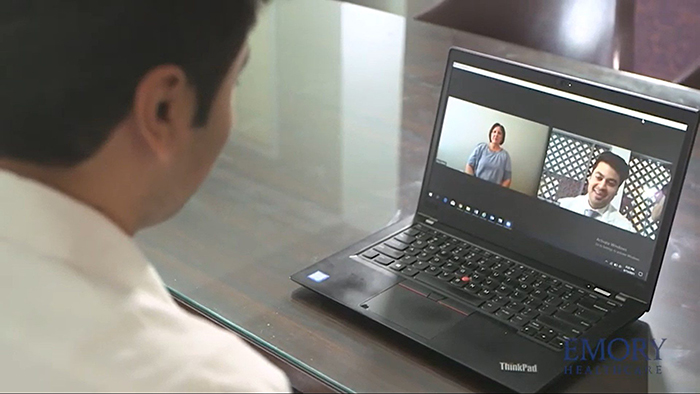When Terri Lynne Willis visited her doctor Samir Parekh, MD, in the summer of 2021, her liver had recently turned 30 years old.
“I asked him, ‘Do you know anyone that was 40 years out?’” she recalls. He thought some, she says, and then answered that he didn’t.
“Well, hang around,” Terri told him, “You will.”
 As one of the first pediatric liver transplant patients in Georgia, Terri was 13 when she received the liver that she still has today. On July 2, 2023, she will celebrate the 32nd anniversary of her transplant – a milestone that is important for her to share with others.
As one of the first pediatric liver transplant patients in Georgia, Terri was 13 when she received the liver that she still has today. On July 2, 2023, she will celebrate the 32nd anniversary of her transplant – a milestone that is important for her to share with others.
“You don’t hear stories like mine, the people who are this far out,” she explains. “I hope it gives somebody some hope, even people who are waiting and haven’t had their transplants. You know, they’re wondering what their lifespan could be afterwards.”
You might hear of a person who’s lived for five or 10 years after a transplant, Terri explains, but her case is unusual. According to the Emory Transplant Center, about 70 to 85% of patients live for five years or more.


 “Back then, you had a pager,” Terri remembers. She and her mother were running errands for her grandfather’s birthday – which was the next day, on July 2. Their pager went off while at lunch with the news that a liver was available.
“Back then, you had a pager,” Terri remembers. She and her mother were running errands for her grandfather’s birthday – which was the next day, on July 2. Their pager went off while at lunch with the news that a liver was available. She also felt a strong connection with
She also felt a strong connection with  “If you’ve heard my story, and still don’t think organ donation is important, I don’t know what to tell you,” Terri says. She says she thinks about her donor, an 11-year-old girl from Arkansas, every day. “I don’t know her name, or anything about her,” she reflects, “But her parents, or mom, in the grief of losing their child thought about saving another child. That says a lot.”
“If you’ve heard my story, and still don’t think organ donation is important, I don’t know what to tell you,” Terri says. She says she thinks about her donor, an 11-year-old girl from Arkansas, every day. “I don’t know her name, or anything about her,” she reflects, “But her parents, or mom, in the grief of losing their child thought about saving another child. That says a lot.”

